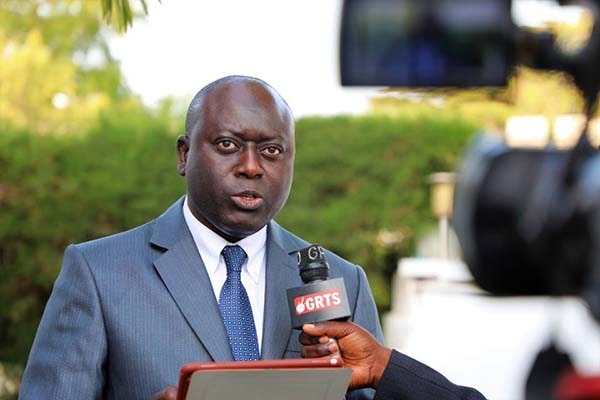As the pilot digital addressing project takes root in the Kanifing Municipality, following the successful completion of the Banjul phase, we examine the progress, prospects and challenges of this long overdue digital project for the country. The Gambia has been grappling with lack of proper physical mapping and addressing, resulting to great logistical inconveniences and perhaps loss in national productivity.
To address this huge gap, the government through the Ministry of Information and Communication Infrastructure, partnered with the Google Plus Company based in the US to initiate a pilot project for effective and proper digital addressing system in The Gambia. The objectives are to ease navigation, enhance social services (Fire, Ambulance and others), ensure better city planning and management, boost e-commerce and e-government services which will greatly help service delivery for everyone residing in The Gambia including embassies, diplomatic missions and those travelling within the country. The preliminary beneficiaries of the project are KMC and Banjul City Council.
Ahmed Talib Bensouda is the Mayor of KM. In this interview he remarked that proper address system will help organise services for private sector and government, address identification, and tax collection through the Google Plus Codes. He added that the system will help organise Gambia’s economy; such as utility and telecoms for effective service identification for council’s sanitations and waste collection, emergency response and easy reach of security rescues.
Mr Bensouda said the lack of property identification has caused lots of revenue loss to council and created confusion in the communities. “Because sometimes you serve somebody a demand note to pay their rent and you realise that is a different name due to unknown transfer of ownership and the system has not been updated. But with this project it will be easy to update with exact property and less reliance on staff for institutional memory in case the person retires, is dead or an ulterior motive’’.
The Mayor noted that most developed and even developing world has proper addressing system; that it helps to organise socio-economic development of any nation, high standard of living, and better quality service and economic growth.
He went on to explain: ‘‘Enter Google Code in the Google app and click search on the resident you want to search and it will automatically show in the map indicating exact location of the search person’s residence. The GPS sequencing is straightforward, whereby there will be no difficulties in tracing. The code is designated on a geographical positioning of latitudinal and longitudinal figures that include the identification of property tax, waste collection and security services”.
Mr Bensouda reported that there has been lots of conspiracy theories since the emergence of the project. “Notwithstanding, the objective was to have simple street names for postal and delivery services, tax collection, emergency responses, food delivery services and better organising of the municipality. People need to understand that addressing system is to their own benefits and to better serve them”.
Bensouda however admitted that there is the need for greater public awareness for people to better understand how it works and the benefits.
MOICI is the leader of the Google Plus Code Project and Mr Alagie Chune is the project manager. He said the Ministry has been notified of the challenges and needs of digital addressing system in the country and therefore decided in 2019 to come up with a viable solution to ensure the inaccurate, unreliable and unavailable digital addressing system in the country, with a pilot project that has been successfully rolled out in the capital city Banjul and currently being scaled up in the KM.
Commenting on some of the challenges, Mr Chune said some address boards have been vandalized, in some communities or removed on the belief that the name of locality printed on the boards were wrong.
‘‘Our ministry has raised warnings that anyone found guilty of the vandalization will face the full force of the law. MOICI acknowledges that some property owners may be concerned about mismatch in terms of locality area accuracy, but they hereby advised to report any mismatch or error noticed on the address board affixed at their properties, to their respective ward councilors, and community leaders”, he warned, stressing that under no circumstances should the address boards be removed.
On awareness creation, he said they have been engaging the public through press releases, TV panels, radio interviews and social media, on the benefits, as well as the redress mechanisms.
Binta Janneh, Deputy Mayor of KM noted that alkalolu and councilors across the country were engaged in a discussion regarding information dissemination about the project to their various communities. She acknowledged that there was lot of commotion around the project and that some address boards were vandalised.
Mariama Jabbi is a resident of Talinding. She lamented that they have been facing some issues since the inception of the Google Plus Code project because some areas were addressed as Ebo Town while they are in Talinding and the fact that some households have long been defaulted at tax-paying and felt that this was to trace and trap them. Madam Jabbi added that some residents complained of damages to their walls while the address boards were being fixed. ‘‘Gambia government should better enlighten the people on the project and find solutions to some places that have wrong addresses due to demarcation’’.
Google Company as an internet software company, has transformed access to information and satellite across the world. It is specialised in various products and among them is Google map which looks into the geographical positioning of data creation.

